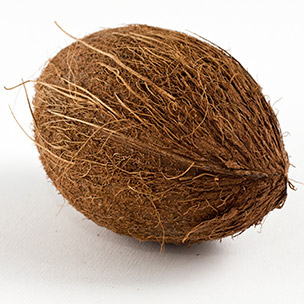August 20, 2014 — It’s an unconventional question: What do you get when you mix coconut husk fibers and recycled plastics? The answer: A sustainable material that can reduce petroleum consumption and carbon emissions while boosting economic development.
Researchers with Essentium Materials in College Station, Texas, are making everything from vehicle trunk liners to wall planters out of coconut husk fibers, long considered an agricultural waste in the production of coconut milk and oil. Elisa Teipel came up with the idea as a graduate student working to find a marketable product for farmers and community members in Papua New Guinea. Since then, Teipel and her husband, Blake Teipel, along with colleagues Ryan Vano and Matt Kirby, have used a National Science Foundation small business innovation research grant to ramp up production of the new material.
The researchers estimate that the coconut husk product could double the annual incomes of the world’s 10 million coconut farmers. But using coconut husk fibers isn’t just good for local economies in developing nations, it’s also good for the environment: The researchers figure that replacing synthetic polyester fibers with the new materials could cut back on 2 to 4 million barrels of petroleum and reduce carbon dioxide output by 450,000 tons each year. Photo by Horia Varlan (Flickr | Creative Commons)
Ensia shares solutions-focused stories free of charge through our online magazine and partner media. That means audiences around the world have ready access to stories that can — and do — help them shape a better future. If you value our work, please show your support today.
Yes, I'll support Ensia!
